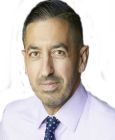Health
Towards an Intergenerational Pursuit of Health
How younger and older populations can work together to build a healthier world.
Posted December 14, 2021 Reviewed by Abigail Fagan
Key points
- Throughout history, older generations have complained about younger generations.
- Society is likely best served by a balance of generational perspectives.
- Older people can sometimes miss the opportunities of the present, and younger people can sometimes lack experience and context.
“The children now love luxury; they have bad manners, contempt for authority; they show disrespect for elders and love chatter in place of exercise. Children are now tyrants, not the servants of their households. They no longer rise when elders enter the room. They contradict their parents, chatter before company, gobble up dainties at the table, cross their legs, and tyrannize their teachers.”
So (allegedly) said Socrates. If the attribution is correct, it would appear that even the ancients participated in the time-honored tradition of older generations complaining about the young. What is perhaps most striking about Socrates’ complaint is how modern it sounds. His accusations—that the young lack manners, disrespect their elders, talk foolishly, and love luxury (as opposed to honest hard work, presumably)—could well have been said by any older person today, perhaps while shooing the young off their proverbial lawn.
Consider, for example, common criticisms of Millennials and Generation Z—the age cohorts born in the 1980s, 1990s, and early 2000s. They have been accused of entitlement, oversensitivity, and lacking a robust work ethic. These accusations are variations on old themes. It is perhaps as inevitable as the changing seasons that generations eventually grow up, look to the young, and ask “Are the kids alright?”
Given these dynamics, and their relevance to how we address issues of core importance to health, it strikes me as well within the purview of this column to tackle the question of whether the kids are indeed alright, and how the extent to which they may not be alright reflects a broken status quo around issues that matter for health.
All of us—younger and older—live in a world that is evolving, complex. This reflects a range of fast-moving changes, from the emergence of new technologies, to the advance of social movements, to sudden shocks like political disruptions and the pandemic. Those of us who are old enough to remember what the world was like before this moment are perhaps more apt to fear what all these changes might mean for the future. This fear can cause us to miss the opportunities of the present, the chances that arise urging us to envision a world that is not only better, but radically so. Those who are younger lack this experience of prior context—this moment of change is their primary reference point in life. They are native to the transitions we see. This can give them the capacity to notice the opportunities older generations can miss, and to boldly seize the chance to shape a better world.
This boldness can, of course, have drawbacks. The zeal to shape a better world can at times lead to devaluing what is good about the world we already have. An evolving moral consciousness can inform a willingness to cast aside much that is useful and necessary from the past. And impatience to get to a better world can cause us to neglect core liberal principles in our rush to end injustice. These are mistakes to which we are all susceptible, but the young are arguably at greater risk. They have had, on balance, less exposure to the consequences which can come with pursuing, with maximum certainty, ideas that may be partially formed or wrong. The corrective to this is, of course, experience, as well as the presence of mentors to help the young channel their conviction into an engagement with the world that is fundamentally constructive. Far from being pedantic, this engagement is good for all participants. It gives the young access to valuable advice, and it keeps their elders in dialogue with the future, via those who will one day shape it.
Such a dialogue strikes me as the most effective way of ensuring that the kids—and older generations—remain alright. Fundamentally, we are best served by a balance of generational perspectives. By striking this balance, the generations can maximize their strengths and minimize their vulnerability to pitfalls. Those who are younger can help those who are older better see how the world might be changed at the structural level, by creating a new status quo, one that is more supportive of health. And older adults can help the young to recognize that, in our pursuit of positive change, we need not reinvent all that has come before—we can draw from the best of past traditions to support an ever-better future.
This balance intersects with the broader project of pursuing a healthier world within a liberal context. The excesses of the younger and the older, if unchecked, can both lead to forms of illiberal thinking. Those who are younger can be captured by a zeal to rearrange systems, causing them to throw some rather necessary babies out with the bathwater. These include core liberal norms which can look, to the young, like reactionary roadblocks. Older populations, for their part, can, in their fear of change, run the risk of embracing some genuinely reactionary, illiberal notions. These can align with political movements which seek to make the future merely an image of the past. Conversation between the generations, unfolding in a liberal context of respect and civility, can help us avoid these excesses and perhaps even open the door to greater wisdom for everybody.
This piece also appears on Substack.


